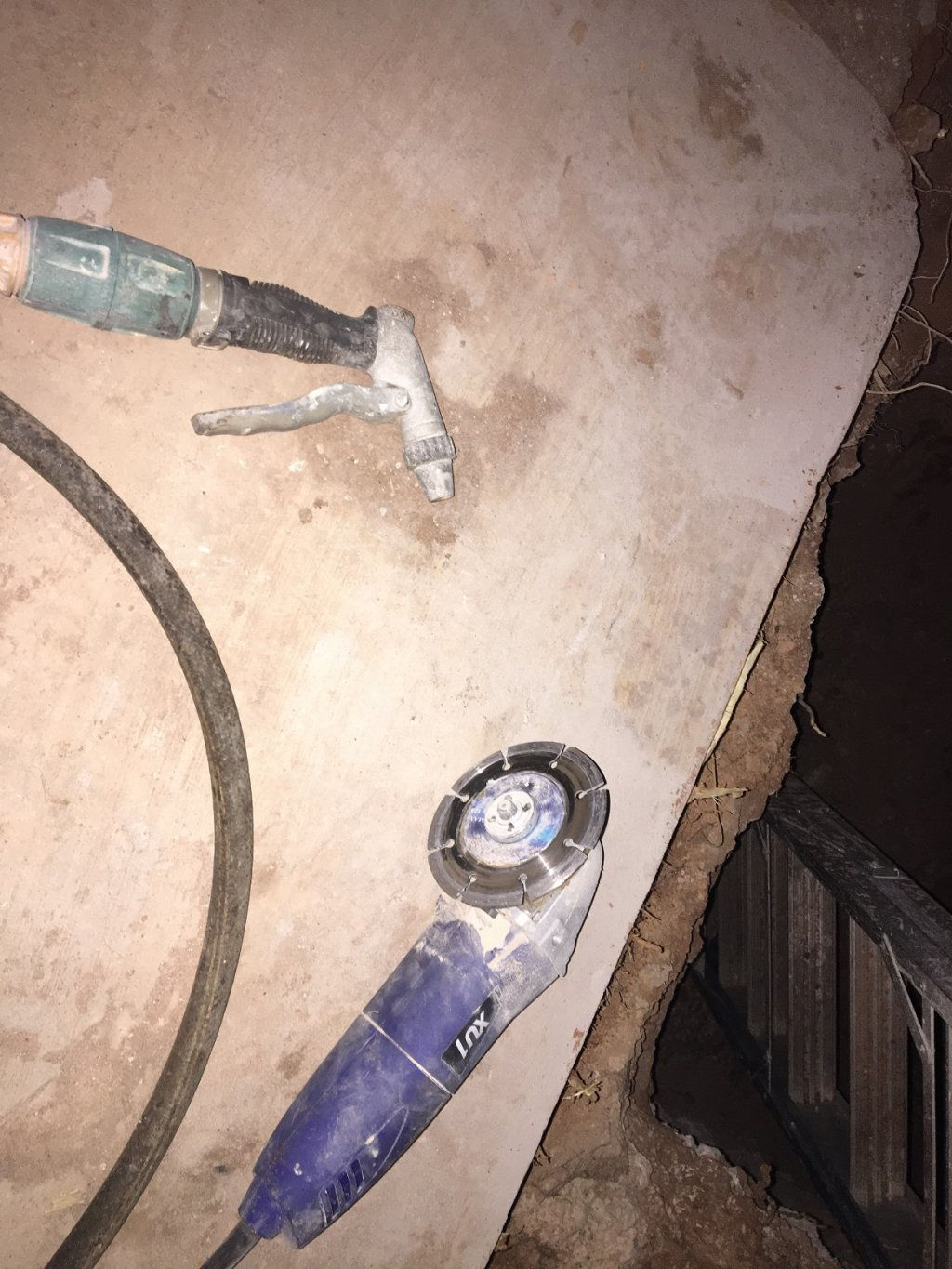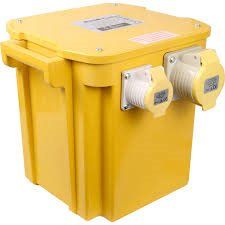Moneybox
Philip & Sandra Box
Today I was playing safe, well sort of. I had my safety boots, gloves, goggles and of course a hat. I had to cut the thin end off the concrete slab so I was using a segmented diamond blade on the trusty XU1 240v grinder. Then I ran a trickle of water to look after my blade 
About half way across the cut I got a good enough electric shock to have me throw the grinder as far as the lead would reach. I had the trigger locked so it continued to spin until I retrieved it. If I'd been standing on my boots perhaps I wouldn't have felt too much but I was kneeling on my bare knee on the wet concrete and I was holding the grinder through gloves but most likely touching the aluminium gear housing on the front of the grinder.

Anyway I finished the cut by making sure I was not grounded and only holding the plastic housing. I've checked the power box and we have RCDs on everything, four of them so I would have expected the switch to throw. As it happened there was no interruption to the power supply at all. It doesn't make me feel confident that these things would prevent electrocution :argh:
About half way across the cut I got a good enough electric shock to have me throw the grinder as far as the lead would reach. I had the trigger locked so it continued to spin until I retrieved it. If I'd been standing on my boots perhaps I wouldn't have felt too much but I was kneeling on my bare knee on the wet concrete and I was holding the grinder through gloves but most likely touching the aluminium gear housing on the front of the grinder.

Anyway I finished the cut by making sure I was not grounded and only holding the plastic housing. I've checked the power box and we have RCDs on everything, four of them so I would have expected the switch to throw. As it happened there was no interruption to the power supply at all. It doesn't make me feel confident that these things would prevent electrocution :argh:




